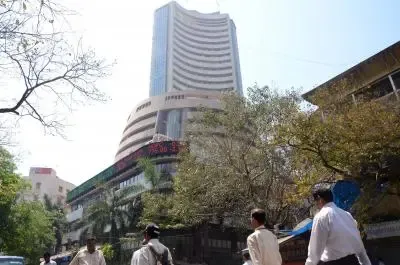Invest in High-Quality Stocks with Resilient Business Models Amid Global Instability: SBI Report

Synopsis
Key Takeaways
- Focus on companies with strong business models.
- Expect further easing of policy rates by the RBI.
- Short-term bond funds may offer good opportunities.
- Hybrid investment products provide stability amid volatility.
- Market sentiment has shifted to neutral levels.
Mumbai, April 7 (NationPress) – With the rise of global economic uncertainties stemming from US trade tariff conflicts, inflation risks, and fluctuating markets, a recent report has advocated for investments in quality businesses aimed at achieving long-term benefits.
According to the findings from SBI Funds Management, "Investors ought to concentrate on companies that exhibit robust business models, evident earnings growth potential, and reliable cash flows, particularly during periods of increased macroeconomic instability."
The report underscores that global financial markets have experienced disruption due to the resurgence of assertive US trade strategies under Trump 2.0, which includes significant tariff increases. India has also felt the impact, with retaliatory tariffs of up to 27 percent imposed across various sectors.
The threat of stagflation—a combination of high inflation and sluggish growth—also remains a concern, especially if the US economy falters due to escalating prices and diminished consumer confidence.
Despite these hurdles, the report points out some optimistic trends within India’s market landscape. The correction in equity prices along with declining bond yields has aligned market valuations closer to historical norms.
Market sentiment has shifted to a more neutral stance, rendering current market conditions more appealing for long-term investors.
The report further notes that India’s central bank, the RBI, has actively managed liquidity. Since December 2024, it has infused over Rs 8.9 lakh crore into the financial system through open market operations and other liquidity measures.
These initiatives have contributed to a reduction in market interest rates and enhanced the overall effectiveness of monetary policy.
Globally, the economic outlook appears mixed. While developed markets like Germany, Japan, and the UK have seen rising long-term yields, the US has maintained relatively stable rates.
The US Federal Reserve is anticipated to lower policy rates at least four more times, though the effects of ongoing tariffs and geopolitical tensions remain uncertain.
In India, the rupee has shown signs of recovery following a decline earlier in the fiscal year. Foreign exchange dynamics, capital inflows, and RBI interventions will continue to play a crucial role in shaping liquidity and interest rates.
The report predicts further reductions in policy rates by the RBI in upcoming reviews, although the central bank may adopt a neutral stance given global uncertainties.
For debt investors, the SBI Funds report recommends that short-term bond funds and credit-focused strategies could present viable opportunities, particularly in the current low-rate environment.
Additionally, it emphasizes that hybrid investment products might serve as a more stable choice for those seeking safety amid equity market fluctuations.










